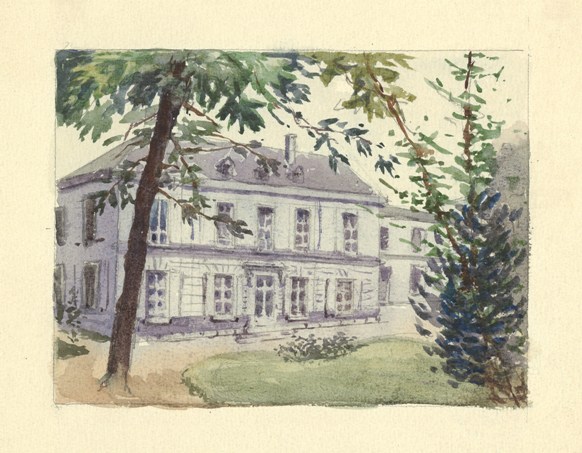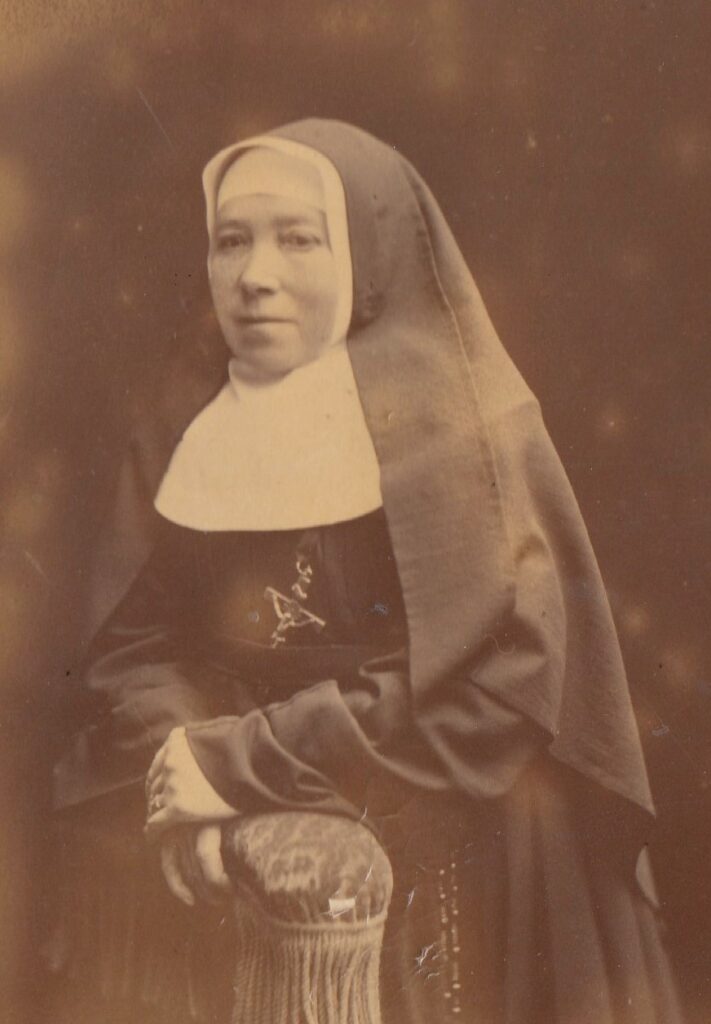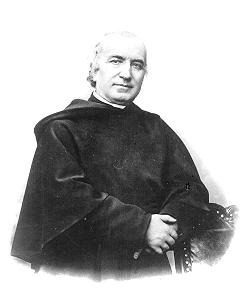A double birth(3/3)

This article is the continuation and conclusion of the double portrait of Etienne Pernet and Antoinette Fage, written to mark the bicentenary of their birth. It was published on this website in three parts, of which this is the third. It goes over the beginnings of the foundation and the leadership of Antoinette and Etienne.
Two founders
From the very beginning of his intuition, Father Pernet knew that to help working-class families in difficulty, he would need “a woman, and a religious one”, as he would later say. He quickly realised that being a priest meant he couldn’t go into the homes as he wished. And indeed, in the society of the time, it would be hard to imagine a priest with a broom in his hand, or worse, attending a birth! Moreover, during his previous experiences he had sensed a certain distrust of priests among the working classes.
And, for a few months, he experienced the beginnings of a foundation with these few nurses in the rue Vaneau. But he soon realised that they lacked a mother. Without a superior, the little charity languished. That’s where Antoinette made the difference. Her practicality, her generosity, her self-sacrifice and even her capacity for autonomy made her the ideal candidate.
In fact, in 1865, Antoinette Fage was an independent woman, very attached to a form of autonomy. Since her childhood, she had wanted to earn her own living so as not to be a burden on those who took her in after her mother’s death. In accepting Father Pernet’s proposal, it’s true that she feared she’d loose this hard-earned freedom. That said, her independent spirit never prevented Antoinette from adapting to life in the community.
On the contrary, this independence of character and capacity for autonomy would be invaluable to the work, especially in the early days and during the many difficulties they faced.
In their relationships with others, both were guided by an attitude of “demanding kindness”. It was not a “bland kindness”, as Mother Humberte reminded us in her booklet on Fr Pernet printed in 1954, but a constructive kindness that forced others to surpass themselves and become better.
For example, Antoinette wrote to Etienne on the 22nd of January 1866:
“I find nothing disturbing with the direction you are giving our dear children, you will never be too gentle for them, for it is better to make yourself loved than feared, especially as you know very well how to add firmness to gentleness when it is necessary”.
Facing difficulties
Of course, there were many difficulties to contend with. The financial difficulties of the early days are well known, and very distressing for Antoinette. The principle of the mission was to accept no payment or help from the patients being treated, ‘not even a glass of water’ (report to the benefactors in 1867), and Antoinette, as in her youth, gave beyond the resources of the young charity. It was only gradually that a system of benefactors and collections was set up, with the help of the other Assumption congregations, which allowed the sisters to take a breather and give themselves entirely to their mission.
There were also some internal conflicts to deal with. For example, with Marie Maire, who had been in charge of the community on rue Vaneau, and who feared being sidelined (her concerns were quickly dispelled once she moved to rue Saint-Dominique).

Antoinette shared her concerns with Father Pernet:
“Does this mean that I alone am good, and that all are bad, God forbid, that I should judge them in this way? But I say that at least two thirds of them are unfit for Religious Life (…); they blame everything, criticise everything, don’t want to submit to anything, constantly survey the behaviour of others, are very touchy about themselves and would like us to always be strict with others (…)”.
Letter to EP, 29th of
February 1868.
The difficulties were also linked to the political context: the 1870 war, the Commune and, later, the general climate, which became increasingly anti-clerical. Added to this were worries of all kinds, in particular the incessant search for accommodation and the successive moves of the young community as the number of its members grew.
But what Antoinette found the most difficult thing to cope with, was the slander and calumny, especially after the departure of two sisters who were highly regarded among the “good people” of the parish. They didn’t believe in the work, which had not yet proved its worth, and which then found itself without resources or support. Father Pernet was of course a father to her, who had never known his own, and to the young congregation. He was also a guide for the sisters, through Marie de Jésus. He watched over her and remained an unfailing support, without allowing himself to intervene directly in the life of the community
He wrote to Antoinette on the 26th of July 1865::
“I rely entirely on you as I do on myself.
But the beginnings are hard and thorny; it would be wrong of me if I did not
tell you that I share the burden with you and that, like you, I feel the thorns”.

In response, she opened up her heart and shared her difficulties with him. In the end, they really supported each other, and a certain reciprocity was established. For example, on the 22nd of January 1866, Etienne wrote:
“I open up to you, my daughter, you must see that, you do the same on your side; this is a guarantee of a good and lasting understanding. I am convinced that this will be the case until the end, until we have accomplished our task.”
Two members of the Assumption
At the same time, Etienne remained a very active Assumptionist in his community, particularly between 1965 and 1870. He was much in demand by his superiors. As one of the first members of the congregation of the Assumptionists, he was one of its pillars. He was therefore particularly imbued with the spirit of the Assumption, which was also reflected in the formulations of vows and in the Rules of the young congregation. At the same time, he gave the congregation its own character, focusing on the “poor and the little ones”. As founder and Assumptionist, he was the guarantor of the charism of the young congregation.
Antoinette embraced this project wholeheartedly. Pernet’s famous “few words, many deeds” found a particular echo in Marie de Jésus, who herself left little in the way of written documents, apart from her correspondence.
They do not do all of what they do to gain any kind of glory. They know they are ‘sent’ and entrusted with a mission, that of ‘remaking a people for God’, and it is the adveniat that guides them.
